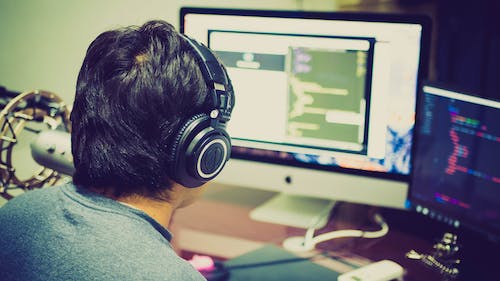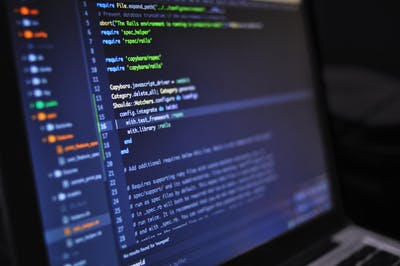Employee monitoring is beneficial to many organisations, but whether it is appropriate for you rests on many criteria. You should think about personnel monitoring if you:
• Oversee a Distant Team: It might be difficult to assess performance when it relates to remote personnel. Employee monitoring allows you to better understand your remote team's behaviour throughout working hours.
• Lead a Team That Uses Computers Regularly: If your staff utilises computers daily, there is a good chance that employees spend much time playing games, social media, or perusing the web. Employee monitoring software could track these behaviours, allowing you and your team to talk about how to change these undesirable habits.
• You Might Well Wish to Increase Your Team's Efficiency: There will always be scope for growth. If you believe your team might be more efficient, employee monitoring helps pinpoint the sources of inefficiency, allowing you to engage your colleagues with evidence rather than assumption.
Characteristics of the Best Employee Monitoring Software
Monitoring Efficiency Rather Than Spying
Assume you aim to enhance and sustain a high standard of performance among your staff rather than probe or spy on them. In this instance, you might discover that intrusive monitoring features are ineffective.
Data Security
The best employee monitoring software generates a large amount of data, which must be securely kept and stored, encrypted, password-secured, and routinely maintained. It is also critical to provide varying degrees of accessibility to monitoring findings (e.g. user, administrator etc.).
Meeting Your Surveillance Objectives
The best employee monitoring software has a wide variety of capabilities. Each functionality increases the burden on the system and comes with a price. Furthermore, not every function contributes to the employee monitoring business objectives. It is critical to select software that perfectly meets your monitoring objectives.
Unambiguous Licencing Terms
Licensing requirements have to be transparent and devoid of any hidden fees. When selecting employee monitoring software or services, consider the cancellation policy, any costs that apply, and the frequency with which they are applied.
Detailed Reports
One of the most significant elements of employee monitoring software is reports. It is critical to have results from the software that displays the data you want.
What Is the Purpose of Employee Monitoring Software?
Employee monitoring systems go far beyond the basic time management functions of clock-outs, clock-ins, and task management. Although some of the companies in this overview are merely tracking gamers with snazzy monitoring capabilities like location tracking, keystroke logging, and screenshots, several provide comprehensive monitoring systems that analyse all employee behaviour. Employee monitoring agents deployed on corporate equipment provide total transparency and control into their activities, especially for major firms that schedule hundreds of shift employees in settings such as contact centres.
Employee monitoring agents also collect important information about employee productivity. To begin with performance tracking, you'll often categorise programmes and websites as beneficial or ineffective. Next, you'll disintegrate how active you anticipate each group, unit, or person to be. Productivity-scoring algorithms allow people to be measured according to their historical output and their colleagues. This information is less focused on penalising people and more about assisting teams in making course corrections and remaining productive.
Employee monitoring software frequently provides data visualisations at a look. Instances are a productivity metre that displays the proportions of unproductive and productive apps and listings and leader boards that display proactive or inactivity users and the most frequently used apps. Many of the systems evaluated could also monitor and record which sites or applications employees use the most and others are underused.
What Are the Benefits of Employee Monitoring Software?
It is no surprise that there is considerable scepticism between companies and their employees. As a result, businesses have sought to watch their workers' actions, particularly during working time, to confirm that they are completing the exact thing at the proper time. Continue reading to see why every organisation requires this time-saving technology.
Excellent for Keeping Records
This is primarily performed via tracking of work time and other productivity measures. Any firm must have a robust record-keeping system in place. A decent solution should be constantly aware of all the timestamps, transactions and schedules without requiring you to do anything.
Keep Track of Attendance
Although there are several methods for monitoring an employee's attendance. But few of them provide the mentioned benefits connected with employee monitoring software. Businesses have been battling with attendance records since the olden days. It is challenging to prove a complaint against any employee without a reliable record. It doesn't help that there do seem to be numerous attributes of attendance that must be taken care of, such as start time schedule, off time schedule, arrival time, breaks, leaves, and so on, which all influence not only that specific performance of the employee but also the effectiveness of the entire workplace. Employees would be kept on their feet and stick to the agreed-upon times if they use an employee monitoring tracking tool.
Better Selection and Assignment
Employee monitoring software solutions provide a better awareness of your employee's specific skills. This allows you to make more informed work selection and allocation of decisions, boosting cooperation and encouraging your employee's knowledge of his gifts. Team trust is increased from management to employees, allowing everyone to see the broader picture.
Employee Monitoring Technologies Save You Time and Money by Increasing Employee Productivity
You should expect better returns on investment if you have a productive workforce. And, because you can measure productivity indicators such as hours worked, you may utilise this data to make payment decisions, especially if your organisation employs shifts and overtime.







